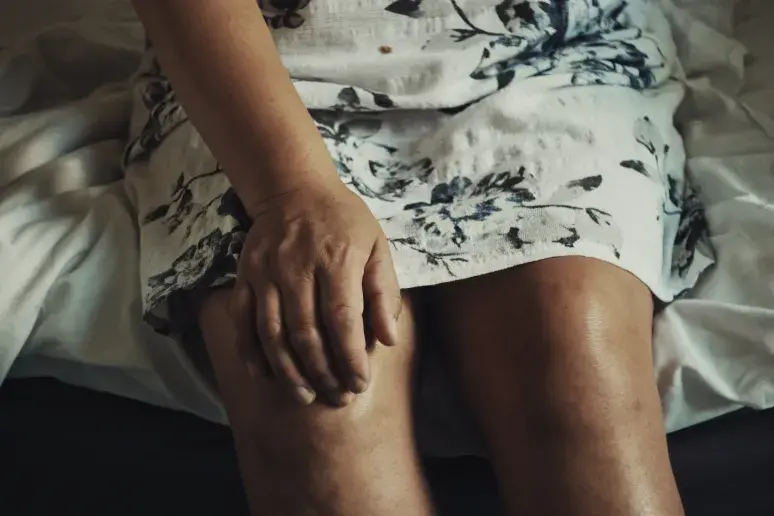
New laser treatment to tackle arthritic knees
Arthritis is a common problem among the elderly, but a revolutionary new laser treatment could spell hope for those suffering from knee pain. It involves inserting a tiny laser, which is 100 times brighter than the sun, into a vein in the arm to accelerate blood flow around the body.
This allows damaged tissue in worn-out joints to repair more quickly, as a fresh supply of oxygen and other nutrients is constantly delivered via the bloodstream. It also has an anti-inflammatory effect, negating one of the main causes of osteoarthritis, which is the most common form of arthritis in the UK.
Scientists believe the treatment could trigger the release of stem cells that help to form new tissue. This could potentially cushion the joints and cut down on the pain that often restricts movement and leads to offer health issues.
Known as intravascular laser blood irradiation, the procedure sees a laser fibre inserted into the arm by way of a catheter. Then, the laser is switched on for 60 minutes and the process is repeated again over the next four days.
The treatment has been developed by scientists at Tri-Service General Hospital and the Ministry of Science and Technology in Taiwan and is currently undergoing clinical trials. A group of 20 patients with osteoarthritis of the knee are being treated with the laser and compared to those receiving a placebo, where the laser is not switched on.
Roger Hackney, a consultant orthopaedic surgeon at the Spire and Nuffield hospitals in Leeds, told the Daily Mail: “With this kind of study, it is crucial to employ ‘blinding’ - in other words the patient does not know whether they are receiving an active treatment or not.
“The placebo effect is very real and can be very effective if measurements such as patient-reported pain scores are used for outcomes. It will be interesting to see the results.”
Blood samples are being taken at intervals of three days, one month and three months after the therapy to monitor its effectiveness. Movements of the joints and reported pain are also being tracked as part of the study.
At present, the treatment options available to those with osteoarthritis range from over-the-counter painkillers and anti-inflammatory drugs to steroid injections. While these are more effective in some people than others, joint replacement surgery is often the only long-term solution.
The NHS performs more than 70,000 knee replacements each year and around 90 per cent of them are as a result of osteoarthritis being in its advanced stages. As well as saving the NHS time and resources, the laser treatment would be a less invasive alternative to surgery.
Find your nearest Barchester care home
With over 200 care homes in the UK, there's always a Barchester care home near you.

